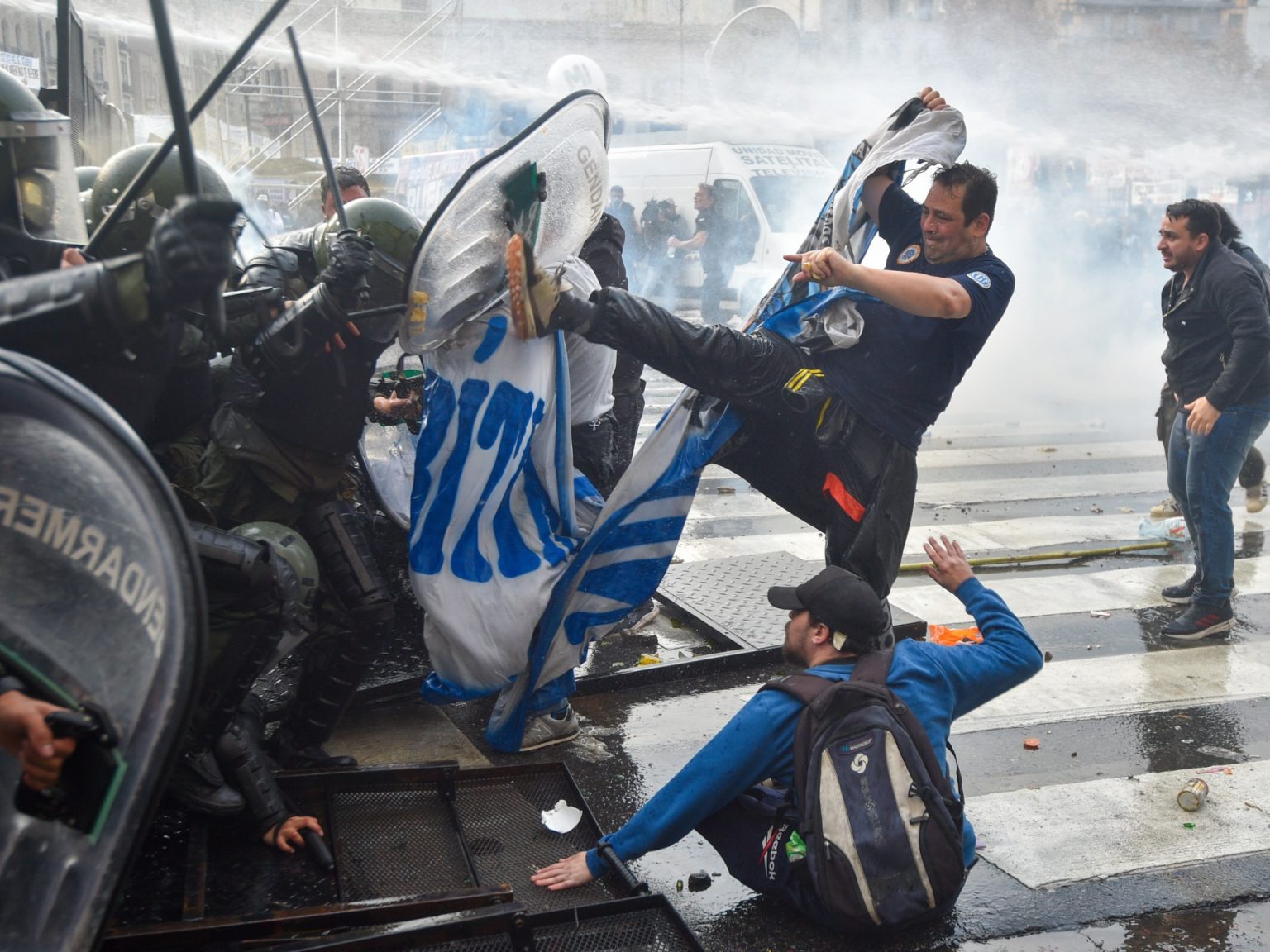In Argentina, protests erupted as President Milei’s economic reform bill moves closer to becoming law. Riot police deployed rubber bullets, tear gas, and water cannons to disperse demonstrators who were against the sweeping changes. The protests indicate widespread opposition to the bill and dissatisfaction with the government’s policies. The use of force by authorities highlights the tension between the government and the public, raising concerns about the state of democracy in the country.
President Milei’s economic reform bill aims to address issues such as inflation, unemployment, and poverty in Argentina. The proposed changes include austerity measures, tax reforms, and cuts to social programs. Supporters argue that the bill is necessary to stabilize the economy and attract foreign investment. However, critics fear that the reforms will disproportionately impact low-income citizens and exacerbate social inequality. The protests reflect the deep divisions within Argentine society over how to address economic challenges.
The heavy-handed response from riot police has sparked outrage and condemnation from human rights organizations, opposition parties, and international observers. The use of rubber bullets, tear gas, and water cannons against peaceful protesters has been criticized as a violation of democratic principles and freedom of expression. The government’s handling of the demonstrations has raised concerns about the protection of civil liberties and the right to dissent in Argentina. The crackdown on protesters has drawn comparisons to repressive regimes and authoritarian tactics.
As the economic reform bill moves closer to becoming law, the government faces a growing backlash from the public and civil society. Calls for dialogue and accountability have been echoed by opposition leaders and activists who are demanding transparency and respect for human rights. The protests signal a broader discontent with the current administration and a desire for change in the country’s economic policies. The government’s response to the demonstrations will be closely watched by domestic and international stakeholders for its impact on Argentina’s democratic institutions.
The escalating tensions between the government and protesters have raised concerns about the potential for further violence and unrest in Argentina. The use of force to suppress dissent may fuel resentment and radicalization among disaffected groups, leading to more confrontations in the future. The authorities’ heavy-handed tactics risk alienating large segments of the population and undermining the government’s legitimacy. The ongoing protests represent a challenge to the status quo and a demand for greater accountability and social justice in Argentina.
In this volatile political climate, the fate of President Milei’s economic reform bill remains uncertain, as opposition to the proposed changes continues to grow. The government’s response to the protests will be a crucial test of its commitment to democracy and human rights. The events in Argentina serve as a reminder of the fragility of democratic norms and the importance of protecting fundamental freedoms in times of crisis. The outcome of the political unrest will shape the country’s future trajectory and determine its standing in the global community.













